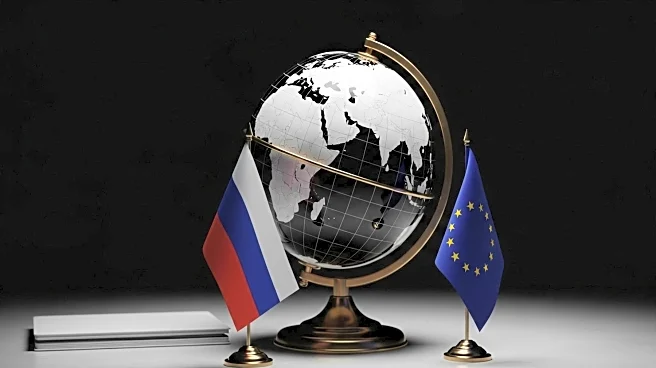What's Happening?
President Trump addressed the United Nations General Assembly, emphasizing the United States' readiness to impose a new set of stringent tariffs on Russia. This move is contingent upon Russia's willingness to engage in peace negotiations. Trump highlighted the necessity for European nations to intensify their efforts in dealing with Russia, suggesting that the current measures are insufficient. The speech underscores the ongoing geopolitical tensions and the U.S.'s strategic approach to international diplomacy.
Why It's Important?
The potential imposition of tariffs on Russia by the United States could have significant implications for international trade and diplomatic relations. Such actions may affect global markets, particularly in sectors reliant on Russian exports. Additionally, Trump's call for Europe to take a more active role could lead to shifts in alliances and strategies within the European Union. This development is crucial for understanding the evolving dynamics of U.S.-Russia relations and the broader geopolitical landscape.
What's Next?
If Russia does not engage in peace talks, the U.S. may proceed with the proposed tariffs, potentially escalating tensions further. European countries might face pressure to align more closely with U.S. policies, which could lead to diplomatic negotiations or adjustments in foreign policy strategies. The international community will likely monitor these developments closely, assessing the impact on global stability and economic conditions.










